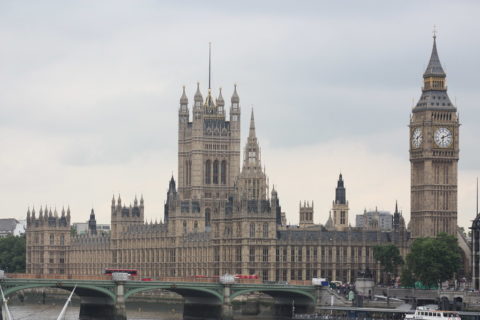Drachinifel
Published 3 Jul 2019Today we look at the world’s oldest commissioned warship, the first rate ship of the line HMS Victory.
Want to support the channel? – https://www.patreon.com/Drachinifel
Want to talk about ships? https://discord.gg/TYu88mt
Music – https://www.youtube.com/c/NCMEpicMusic
January 17, 2022
HMS Victory – The Original Fast Battleship
“We need to address the corrosive influence of behavioural science on public life”
Frank Furedi on the British government’s use (and over-use) of “nudge” polices to influence the behaviour of the British public:

“Palace of Westminster”by michaelhenley is licensed under CC BY-NC-SA 2.0
Behavioural science, aka “nudging”, has been used by the government during the pandemic to scare people into doing the “right” thing. This insidious development has even been acknowledged by Simon Ruda, one of the co-founders of the Behavioural Insights Team, aka the Nudge Unit, which is part-owned by the UK government. He wrote that the “most egregious and far-reaching mistake made in responding to the pandemic has been the level of fear willingly conveyed [to] the public”.
Though he said that the propagation of fear had more to do “with government communicators and the incentives of news broadcasters” than with behavioural scientists themselves, Ruda’s admission is still striking. He even expressed concern about the state’s willingness “to use its heft to influence our lives without the accountability of legislative and parliamentary scrutiny”.
Ruda is not the only behavioural scientist concerned about officialdom’s systematic scaremongering. On 22 March 2020, a paper written by the Scientific Pandemic Influenza Behaviour Advisory Committee (SPI-B) for the government’s Scientific Advisory Group for Emergencies (SAGE) complained that the public was too relaxed about the pandemic. “A substantial number of people still do not feel sufficiently personally threatened”, it stated, adding that too many “are reassured by the low death rate in their demographic group”. It then urged the government to increase “the perceived level of personal threat… among those who are complacent, using hard-hitting emotional messaging”.
Some members of SAGE have since reported feeling “embarrassed” by the nature of SPI-B’s advice. As one regular SAGE attendee put it last year: “The British people have been subjected to an unevaluated psychological experiment without being told that is what’s happening.”
It is to be welcomed that at least some behavioural scientists are now questioning the political use of their discipline. But the problem goes deeper than fear-mongering during the pandemic. We need to address the corrosive influence of behavioural science on public life in general.
The shooting range where you fire over a busy road
Tom Scott
Published 18 Oct 2021The Brünnlisau shooting range in Switzerland has its targets on the other side of a major road. And it’s safe. Here’s how and why. Thanks to everyone at the Schiessanlage Brünnlisau!
Camera: Alicja Pahl
Producer: Sebastian Capeda at Viven https://viven.ch
Editor: Michelle Martin https://twitter.com/mrsmmartinI’m at https://tomscott.com
on Twitter at https://twitter.com/tomscott
and on Instagram as tomscottgo






